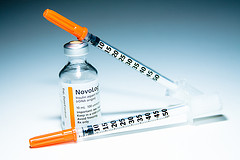A 6-Step Checklist for Traveling with Medications
4 October 2012One of the most common questions international travelers have – or should have – is whether they’re allowed to bring certain medications into a foreign country.
While the concern is often fueled by media headlines about individuals who are imprisoned for carrying common medications available in their country of origin through customs, it’s still a valid question.
As an example, some over-the-counter medications can’t be brought into Japan including a few inhalers as well as common allergy and sinus medications.
Before we get to our checklist, let’s review some background information about traveling with medications.
Which medications cause problems at the border?
Two classes of medications – narcotics and psychotropics – are under the purview of international law, which means that any medication that has an effect on the central nervous system will likely be highly regulated. Narcotics have the higher potential of being abused, and psychotropics are used to treat mental disorders.
Some countries also exclude a range of medications used to treat neurological conditions such as epilepsy. Others treat sedating antihistamines as banned substances. A few countries, like the United Arab Emirates, include a range of common medications like contraceptive hormones.
International agreements (sort of) govern the transportation
The International Narcotics Control Board (INCB) is an independent organization responsible for international agreements governing the transportation of medications across borders. Their broad principles concerning travelers intending to carry narcotics and psychotropics are basically:
- Travelers should be allowed to carry quantities of these substances for personal use for up to one month of travel.
- Travelers will have a letter and/or prescription from their doctor when traveling with narcotics (but not necessarily for psychotropics).
The INCB also requires countries submit their individual regulations for travelers, but not all have and some are quite vague and even deviate from what the INCB has decided.
The TSA provides helpful information regarding the transportation of medications specifically for travelers with disabilities and medical conditions.
Start by knowing your risk
Finding the true regulations governing the entry of medications into your destination country can be very hard. Country websites may provide the answer, but who knows whether the customs officials have been well trained or fully informed?
Check the INCB website for information when traveling with medications. Be aware of which medications require carrying a prescription or a letter from your doctor. Know that most countries permit only a 30-day supply of certain medicines.
Consistent advice, even from the embassies, can be difficult to obtain, but two countries: Japan and the United Arab Emirates where regulations are particularly strict also have embassy websites that offer a good amount of guidance for restricted medications and special drug regulations. Do a little digging and ask your doctor for advice.
6-Step Checklist for traveling with medications
Use the following checklist when traveling with medications:
- Always carry drugs and medical equipment, including syringes, needles, catheters, etc., in their original labeled packages – do not put medicines in unmarked containers.
- Be prepared to answer questions at the airport and border crossings about the medications you are carrying – have a spare prescription on hand and a doctor’s note, if necessary.
- Know how to safely store the medication and check it if it requires refrigeration and use insulated containers during transit (your pharmacist will have container and packaging recommendations).
- Unless it requires refrigeration, pack your medication in your carry-on and not your checked bag to minimize loss or theft. If you are traveling with another person, consider splitting the medication for the same reason.
- Be prepared with a backup plan if your medication is confiscated. Have an original prescription and a letter from your doctor to facilitate the consultation.
- Make sure you have travel medical insurance and check that it will cover lost, stolen, or confiscated medications.
Some medications may not be available in your host country, or they may not come in the same dosage, so you’ll need to rely on your doctor’s office and your travel insurance emergency assistance representative to coordinate through any language barriers.
Do not count on having someone back home ship your medications either because it’s illegal to send some prescription medications through the mail to certain countries. You’ll have to pre-check with the postal service and customs office before trusting this backup plan. Even so, it’s common for packages to be be delayed and even damaged or lost when passing through customs.
Remember that any change in your prescription medications that occurs within the look-back period for a known medical condition is defined as a pre-existing medical condition. Be sure your travel medical coverage covers pre-existing medical conditions if this is the case.
Damian Tysdal is the founder of CoverTrip, and is a licensed agent for travel insurance (MA 1883287). He believes travel insurance should be easier to understand, and started the first travel insurance blog in 2006.

